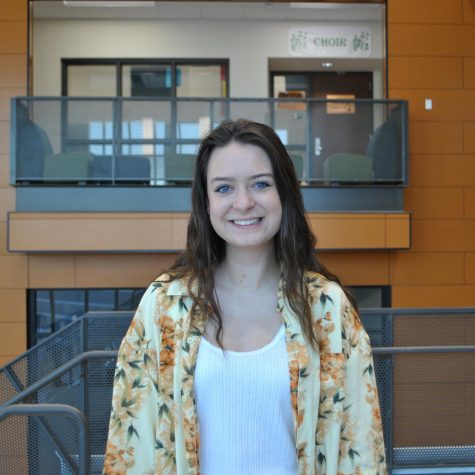EHS to employ drug-sniffing dogs in parking lot: Police dogs on campus set to act as a further deterrent against student drug use
May 14, 2019
Edina High School plans to employ drug-sniffing canines in the near future as a means of preventing student drug use and promoting a substance-free campus. While still seeking approval from the School Board, EHS will likely welcome the dogs early next school year in partnership with the Edina Police Department (EPD).
The idea to employ drug-sniffing canines came from Principal Beaton’s previous work in the Bloomington School District, where they partnered with the Bloomington Police Department to bring dogs onto campus. Seeking to bring this approach to EHS, Beaton spoke with the Police Liaison and the Edina Public Schools Superintendent to make the idea a reality.
In order to move forward, EHS needs permission from the School Board. “This year we proposed policy language [to the School Board] that would allow for the dogs, and they’re currently weighing that option,” Beaton said.
EHS’ search policy is different from general police search policy. For schools, case law centers around reasonable suspicion in order to conduct a search. Essentially, a canine hinting at a vehicle constitutes reasonable suspicion to warrant a search.
Beaton maintains that “in no way is a canine search a panacea for all chemical use. However, there are consequences for drug use and possession.” Not only is the school aiming to prevent substance abuse on campus, they will also incorporate substance education into the process. “If we get a kid that’s caught using, we ultimately want them to stop,” Beaton said. “If [a canine force] is another sense of deterrence and helps us get more students the support and help they need, then I’m in favor of it.”
According to Beaton, the use of canines is part of a multi-pronged approach to eradicating drugs on campus and deterring student use. “It’s something that helps us partner with the police department, provides some deterrence from chemicals on the school property, and if we do catch somebody, we have the opportunity to intervene and get the student the help they need.” Beaton said.




antifascopalian C-OCP/CPFE • Jul 22, 2019 at 8:23 am
Absolutely reprehensible.
I thought this was a ‘radical progressive’ high school and one which was committed to equity and constructive resistance to racially biased policing practices?
You want to help subject minors to the ‘justice’ system for having a bit of weed on them at school? Will it include forced strip searches of students who aren’t even holding but are misidentified as such by the dogs? I acknowledge teen drug use can be harmful, but this reactionary nonsense SHOULD NOT be ‘welcomed’ on campus and if it is then your teachers and administration are not as progressive as they make out.